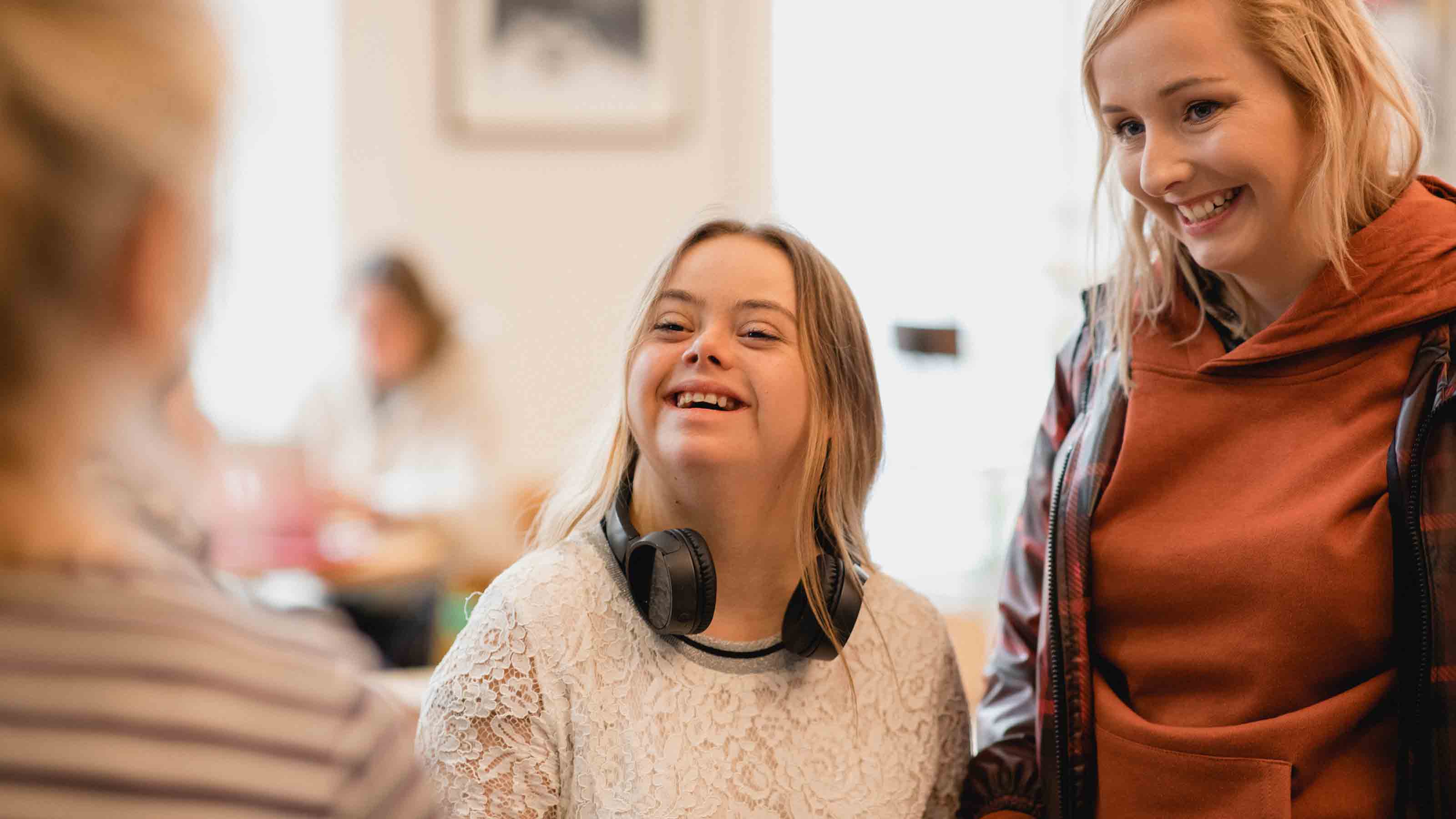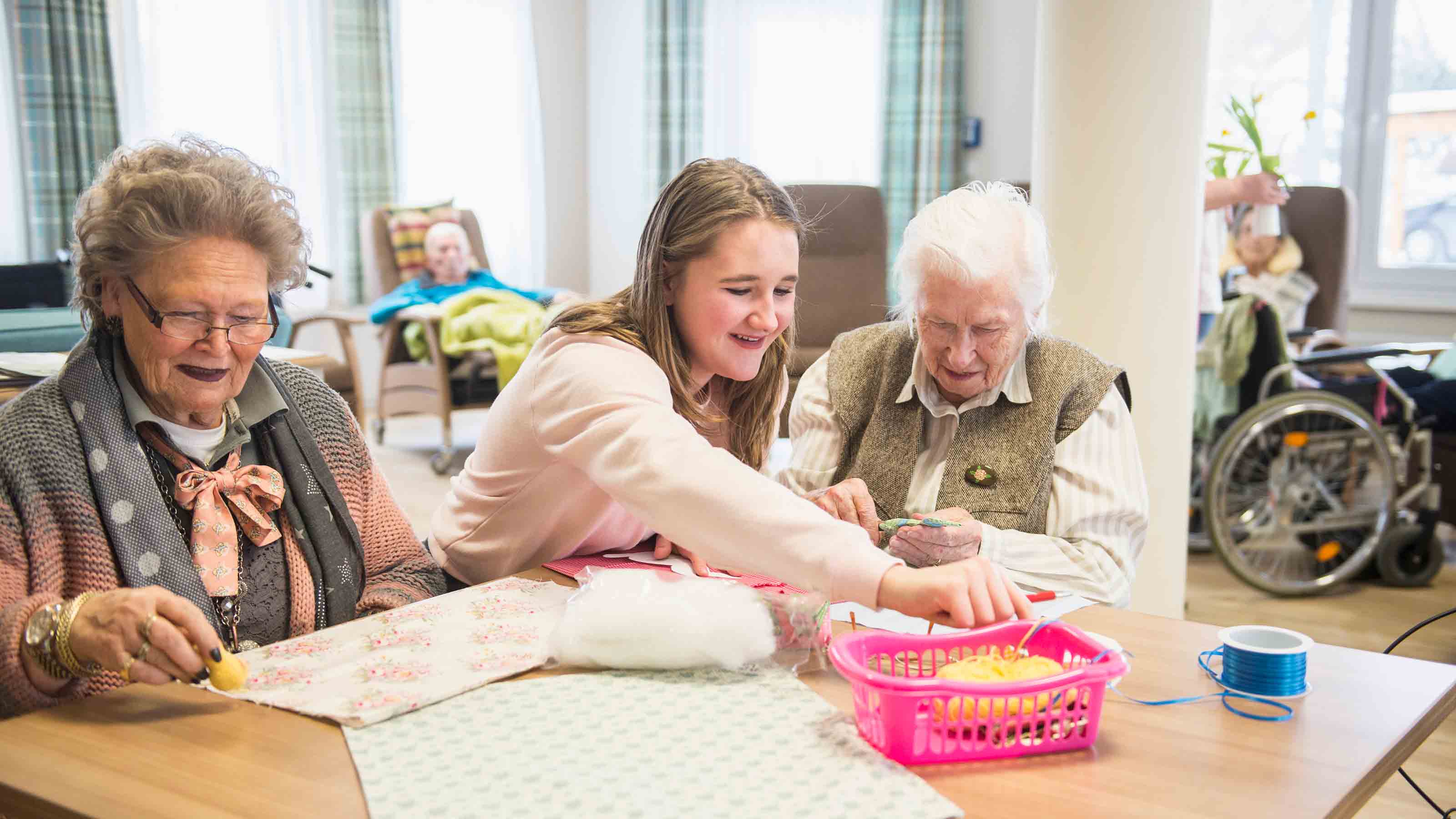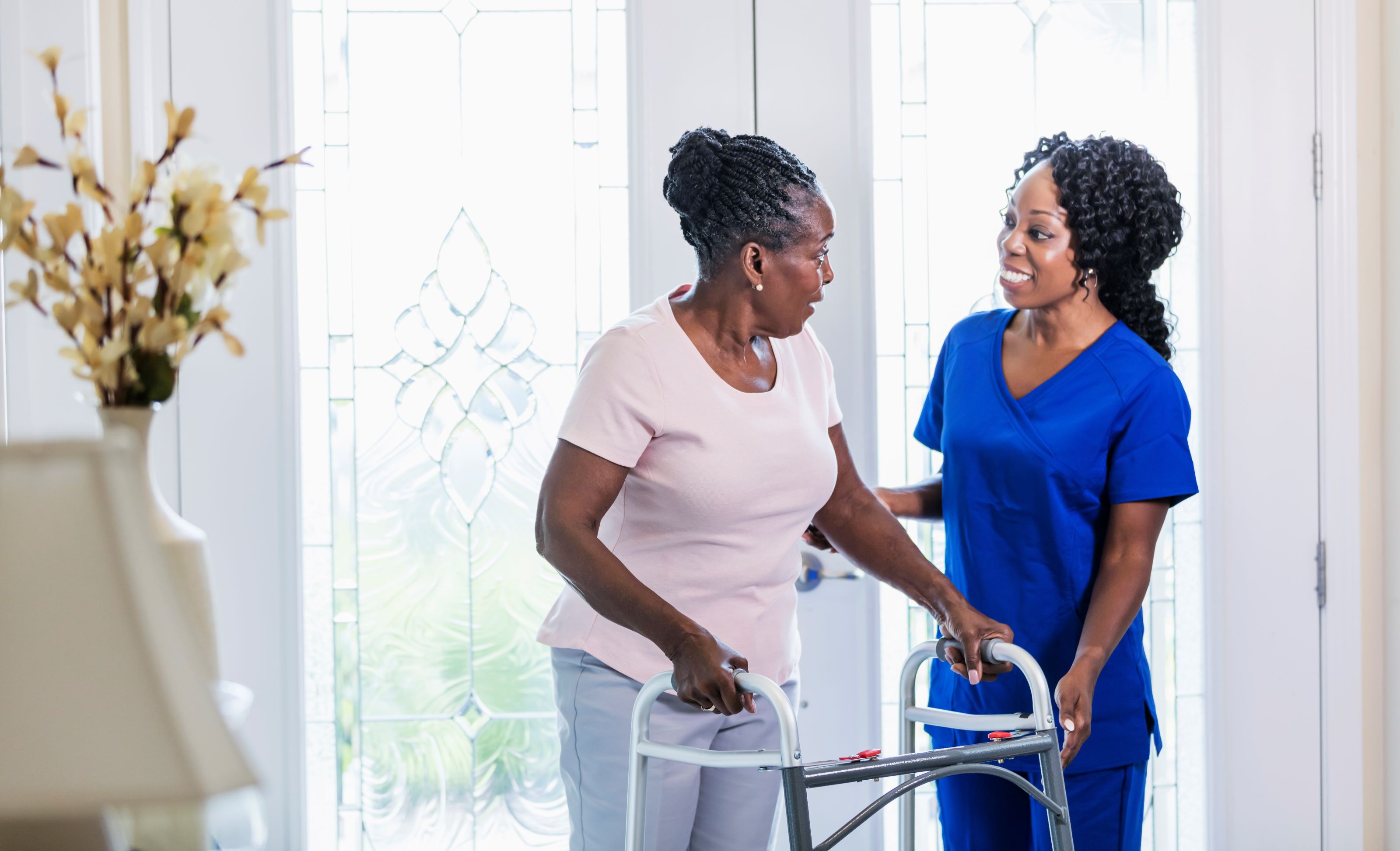Moving My Mom in With Me
Here are the challenges I'm facing as I prepare to move a parent with dementia into my house.

Profit and prosper with the best of Kiplinger's advice on investing, taxes, retirement, personal finance and much more. Delivered daily. Enter your email in the box and click Sign Me Up.
You are now subscribed
Your newsletter sign-up was successful
Want to add more newsletters?

Delivered daily
Kiplinger Today
Profit and prosper with the best of Kiplinger's advice on investing, taxes, retirement, personal finance and much more delivered daily. Smart money moves start here.

Sent five days a week
Kiplinger A Step Ahead
Get practical help to make better financial decisions in your everyday life, from spending to savings on top deals.

Delivered daily
Kiplinger Closing Bell
Get today's biggest financial and investing headlines delivered to your inbox every day the U.S. stock market is open.

Sent twice a week
Kiplinger Adviser Intel
Financial pros across the country share best practices and fresh tactics to preserve and grow your wealth.

Delivered weekly
Kiplinger Tax Tips
Trim your federal and state tax bills with practical tax-planning and tax-cutting strategies.

Sent twice a week
Kiplinger Retirement Tips
Your twice-a-week guide to planning and enjoying a financially secure and richly rewarding retirement

Sent bimonthly.
Kiplinger Adviser Angle
Insights for advisers, wealth managers and other financial professionals.

Sent twice a week
Kiplinger Investing Weekly
Your twice-a-week roundup of promising stocks, funds, companies and industries you should consider, ones you should avoid, and why.

Sent weekly for six weeks
Kiplinger Invest for Retirement
Your step-by-step six-part series on how to invest for retirement, from devising a successful strategy to exactly which investments to choose.
In less than two weeks, I'll be moving my mother, who has Alzheimer's disease, into an apartment we have in our house. My husband, mother and I made this decision months ago -- so this was not a knee-jerk reaction to my mom's increasing need for assistance. Yet, the closer moving day gets, the more stressed we get.
Moving a parent with dementia requires a lot more planning -- and finessing -- than most any other move. Here are some of the challenges I have faced and how I've dealt (or plan to deal) with them.
You need a plan everyone is comfortable with. My mother is at a stage where she needs assistance but not the type of constant care a nursing home would provide. She balked at the idea of assisted living -- and I don't blame her. She's at least ten years younger than the residents at the facilities we visited. Plus, assisted living would cost at least $3,000 a month.
From just $107.88 $24.99 for Kiplinger Personal Finance
Become a smarter, better informed investor. Subscribe from just $107.88 $24.99, plus get up to 4 Special Issues

Sign up for Kiplinger’s Free Newsletters
Profit and prosper with the best of expert advice on investing, taxes, retirement, personal finance and more - straight to your e-mail.
Profit and prosper with the best of expert advice - straight to your e-mail.
My husband and I didn't like the idea of leaving her in her home for so many reasons it would take too long to detail here. Luckily, we have an apartment in our house where she can live. It gives her a sense of independence and gives me a sense of comfort knowing I can check on her throughout the day. I will hire someone to help my mom run errands and keep her active. But because she will be so close and I can help mom with so many things, we won't have to pay for nearly as many hours of assistance as we would have to if she remained in her home.
Move mom out before selling her house. We went back and forth on this one because a furnished home typically sells better than an empty one. Yet it would be logistically difficult to get my mom out of her home every time a potential buyer wanted to see it because she no longer drives. Plus, the process would be confusing -- and likely traumatic -- for my mom. So we decided that potentially getting a lower price on the house because it isn't well staged matters less than my mother's well-being.
Let mom keep her stuff. I thought I would be doing my mother a favor by measuring all the rooms in the apartment to figure out which pieces of her furniture would fit. I only confused her and discovered that there was little she wanted to part with. My husband helped put it in perspective for me. "If she wants to pack that apartment full with her furniture, let her," he said. "She feels like she has lost so much already. Just let her keep her things." She is willing to sell a few things, and we compromised on some others (I'll sell some of my furniture I'm not particularly attached to in order to make room for some of her antique pieces she doesn't want to part with but just won't fit in the apartment). If you're moving a parent into just one room in your house, let her bring her bedroom furniture and some other favorite items so it will be familiar to her.
Don't let mom be in her house when the movers come. This follows the same reasoning as moving mom out before selling her house. I plan on having one of mom's friends take her to the new abode to start hanging a few pictures, curtains, etc. When the movers arrive, my mom's friend will help tell the movers where to put things. If your parent isn't too concerned about overseeing furniture placement, you might have someone take him or her out to lunch or to run errands while the move occurs.
Expect confusion no matter what you do. I showed my mother the apartment a couple of months ago while tenants still were living there -- yet she couldn't remember having seen it. I showed it to her a few days ago after the tenants moved out. She called the next day to say she wasn't sure this was the right thing for her. After I explained to her why we made this decision, she asked to see the apartment again. I showed it to her again -- this time focusing on all the benefits. "Yes, the kitchen is small, but you can invite your friends over for a potluck gathering and you won't have to cook. You can have happy hour on the balcony with your friends. You can walk with us down the street to concerts in the park." She probably won't remember everything I said, but the visit made a pleasant impression on her and left her feeling more relaxed about the upcoming change.
If you have a parent living with you or have moved a parent into an assisted living facility, please share your tips in the comment box below.
Profit and prosper with the best of Kiplinger's advice on investing, taxes, retirement, personal finance and much more. Delivered daily. Enter your email in the box and click Sign Me Up.

Award-winning journalist, speaker, family finance expert, and author of Mom and Dad, We Need to Talk.
Cameron Huddleston wrote the daily "Kip Tips" column for Kiplinger.com. She joined Kiplinger in 2001 after graduating from American University with an MA in economic journalism.
-
 How Much It Costs to Host a Super Bowl Party in 2026
How Much It Costs to Host a Super Bowl Party in 2026Hosting a Super Bowl party in 2026 could cost you. Here's a breakdown of food, drink and entertainment costs — plus ways to save.
-
 3 Reasons to Use a 5-Year CD As You Approach Retirement
3 Reasons to Use a 5-Year CD As You Approach RetirementA five-year CD can help you reach other milestones as you approach retirement.
-
 Your Adult Kids Are Doing Fine. Is It Time To Spend Some of Their Inheritance?
Your Adult Kids Are Doing Fine. Is It Time To Spend Some of Their Inheritance?If your kids are successful, do they need an inheritance? Ask yourself these four questions before passing down another dollar.
-
 Estate Planning: A Special Trust for a Special Need
Estate Planning: A Special Trust for a Special NeedCaregiving Special needs trusts can help fund quality-of-life improvements for the beneficiary, such as a phone, a trip or a private room in a group care facility.
-
 Adult Day Centers Help Retirees with Alzheimer's
Adult Day Centers Help Retirees with Alzheimer'sCaregiving A center that offers social interaction, along with physical and memory activity, is a lift for those with forms of memory impairment. Their caregivers benefit, too.
-
 Caregivers Share Their Stories
Caregivers Share Their StoriesCaregiving Readers' own perspectives on the struggles and triumphs of caregiving.
-
 The Stresses of Being a Caregiver
The Stresses of Being a CaregiverCaregiving One study shows that caregiving takes a greater toll on retirees' mental health than on their finances.
-
 5 Steps to Getting Help From a Home Care Agency
5 Steps to Getting Help From a Home Care AgencyCaregiving A home health aide who helps provide nonmedical care to a loved one can be a great way to provide some relief to a caregiver.
-
 Tips for Making Caregiving an Easier 24/7 Labor of Love
Tips for Making Caregiving an Easier 24/7 Labor of Lovelong term care Caregivers are America's invisible helpers, often giving up everything to care for an ailing family member. But there are ways to lighten that burden.
-
 Estate Planning Got You Down? Start With a Will
Estate Planning Got You Down? Start With a WillFinancial Planning Estate planning may feel overwhelming. Start with a will and the rest will fall into place.
-
 When Mental Health and Aging Collide
When Mental Health and Aging CollideCaregiving For retirees struggling with depression, a psychologist who specializes in older adults might be the right path toward recovery.